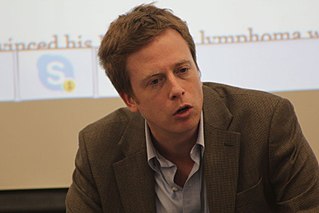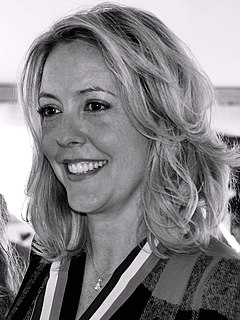A Quote by Eugene Jarecki
The prison industrial complex, to put it in its crassest term, is a system of industrial mass incarceration. So there's what you call bureaucratic thrust behind it. It's hard to shut off because politicians rely upon the steady flow of jobs to their district that the prison system and its related industries promise.
Related Quotes
I think the biggest problem in our country is mass incarceration and the prison-industrial complex. From the Rockefeller drug laws to stand your ground to stop and frisk, all these are pointing people, especially and disproportionately black and brown people, towards the criminal-justice system. It's depleting whole generations of people.
If you talk about the prison-industrial complex, I've fought against the prison-industrial complex when I called for a repeal of the Rockefeller drug laws. The biggest impediment to get the laws changed was the lobbyists. Whether you're talking about healthcare, jobs going overseas, or tax reform, you're always coming up against lobbyists.
The war on drugs has been the engine of mass incarceration. Drug convictions alone constituted about two-thirds of the increase in the federal prison population and more than half of the increase in the state prison population between 1985 and 2000, the period of our prison system's most dramatic expansion.
By the end of the documentary [ '13th'], you really understand what prison is, what the prison industrial complex is, where this whole Black Lives Matter movement comes from, the history of resistance, the history of how politicians have used criminality over the decades for a particular political gain. It's to give people an understanding of it so they can make their own decisions about how they want to be in the world.
The prison-industrial complex employs millions of people directly and indirectly. Judges, prosecutors, defense attorneys, prison guards, construction companies that build prisons, police, probation officers, court clerks, the list goes on and on. Many predominately white rural communities have come to believe that their local economies depend on prisons for jobs.
Being a figurehead for those with family members in prison is somewhat new for me. Something I've discovered since my father's incarceration is that the prison system is broken. My first-hand experiences have taught me that reform needs to happen sooner than later. I'm most interested in mentoring children with parents in prison. When a parent is sentenced to a jail term, the child is sentenced to the same time to be spent without a mother or father. No child should suffer a stigma or lack support and guidance because of the sins of a parent.
The system functioned relatively automatically, and the prevailing system of racial meanings, identities, and ideologies already seemed natural. Ninety percent of those admitted to prison for drug offenses in many states were Black or Latino, yet the mass incarceration of communities of color was explained in race-neutral terms, an adaptation to the needs and demands of the current political climate.
The prison-industrial complex, poverty, and the school system has more effect on a young black male in America than Jay-Z does, by far. And that's not a diss to Jay-Z. The crime rate in the black community was high before hip hop. Rapping about it is just a reflection of the life a lot of people are living.
































